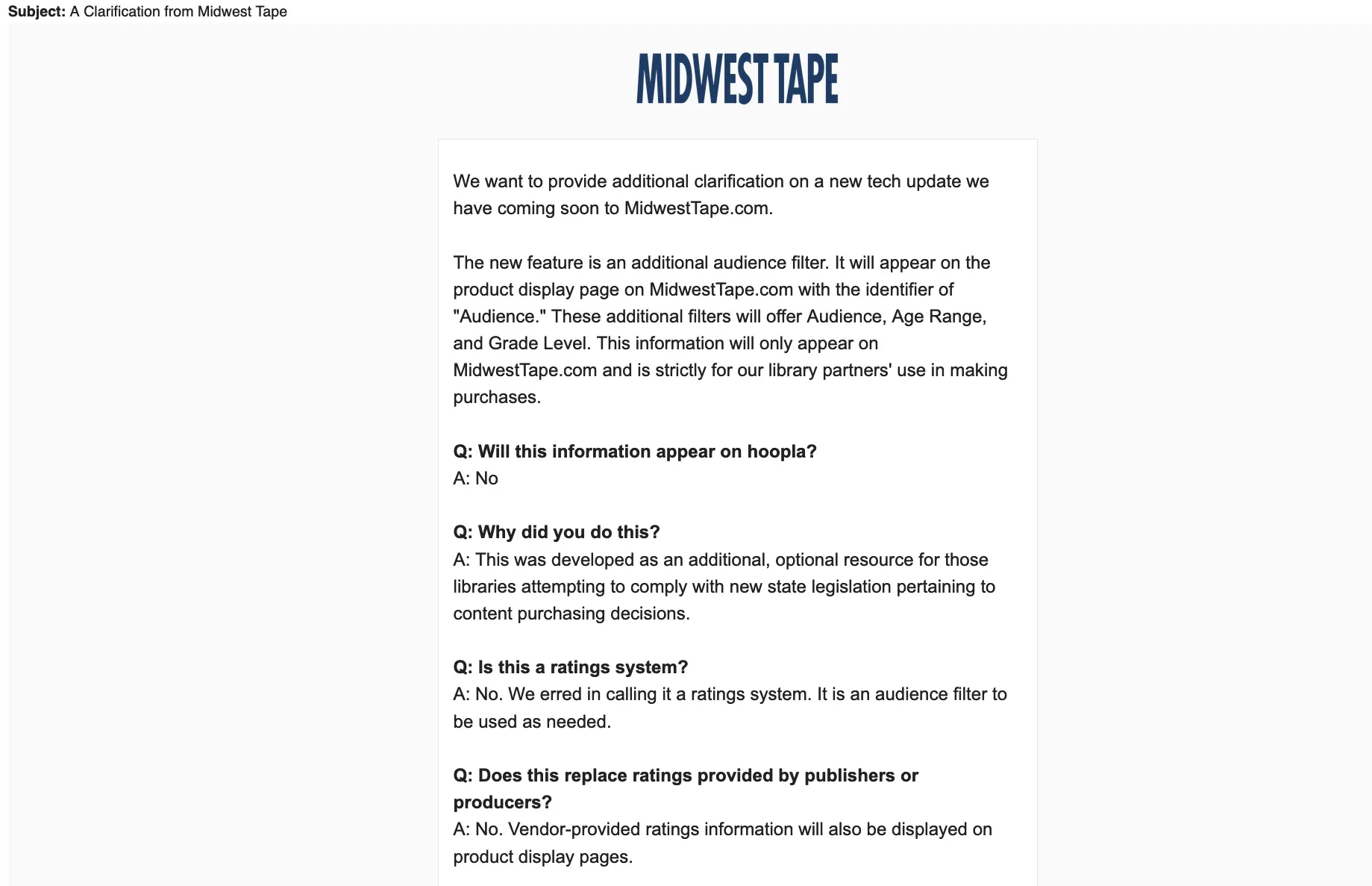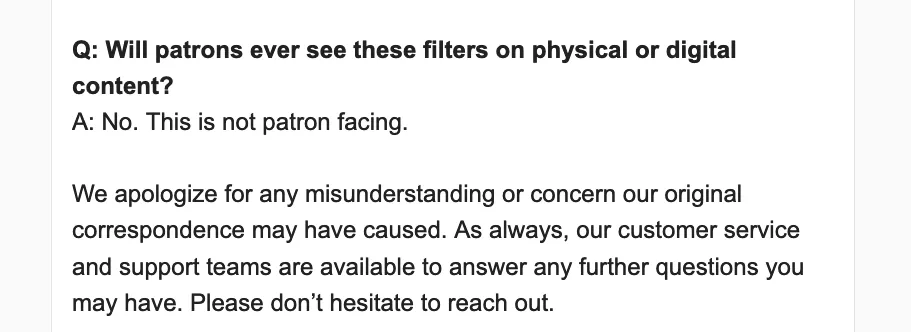
Midwest Tape/hoopla “Clarifies” Their New Ratings System
In an email that went out from library Midwest Tape/hoopla to customers, the company has clarified their new ratings system, first reported here yesterday. It notes that the system they described would not be a ratings system but a filter used to help library users find content.
Midwest Tape noted that the ratings would not appear on hoopla material and that they “erred” in calling it a ratings system. “It is an audience filter to be used as needed,” reads the email, noting that “This was developed as an additional, optional resource for those libraries attempting to comply with new state legislation pertaining to content purchasing decisions.”
The filters will not be patron facing but for use with librarians in states where ratings are necessary for purchase. Again, as of writing, only one state requires this and those materials are already rated via the publishers. These filters will also not override the ratings already provided by publishers. That further begs the question of why if there is already a noted system in place.
None of the response addresses where this filter system come from? It still shares its name with the one used by popular book banning groups like Moms For Liberty on their BookLooks website. Midwest Tape offers no provenance for it, nor any insight into who is choosing different designations from the ones already applied by publishers and producers of the material they’re selling to libraries.
The email ends with an apology for “any misunderstanding or concern our original correspondence may have caused.”
Unfortunately, in an era of nonstop book bans and legislation nationwide that directly targets materials by and about marginalized people, such additional filters only create more confusion and disconnect. Library workers are smart enough to use their professional tools and resources to filter material as need be–filters created by distributors and not the publishers themselves not only sows confusion but further undermines the trust of professionals working in libraries.
It’s a clarification that leaves even more questions than answers.











